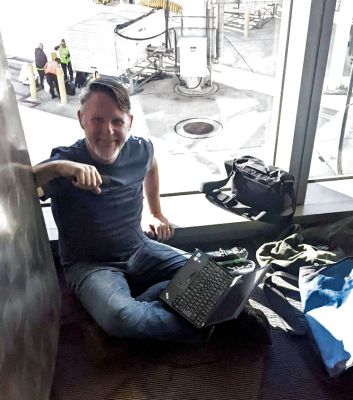This week, Editor-in-Chief Elliot Williams and Kristina Panos met up to discuss the best hacks of the previous week, at least in our opinions.
After chasing the angry bird away from Kristina’s office, we go to the news and learn that we’re in the middle of a solar conjunction Essentially, the Sun has come between Earth and Mars, making communication impossible for about another week. Did you know that this happens every two years?
Then it’s time for a new What’s That Sound, and although Kristina had an interesting albeit somewhat prompted guess, she was, of course, wrong.
And then it’s on to the hacks, beginning with a really cool digital pen that packs all the sensors. We learned about the world’s largest musical instrument, and compared it to the Zadar Sea Organ in Croatia, which if you’ll recall was once a What’s That Sound.
From there we take a look at fake buck converters, radioactive water as a health fad, and a garage door company that has decided to take their ball and go home. Finally we talk about how slippery neutrinos are, and discuss Tom’s time at JawnCon.
Check out the links below if you want to follow along, and as always, tell us what you think about this episode in the comments!













